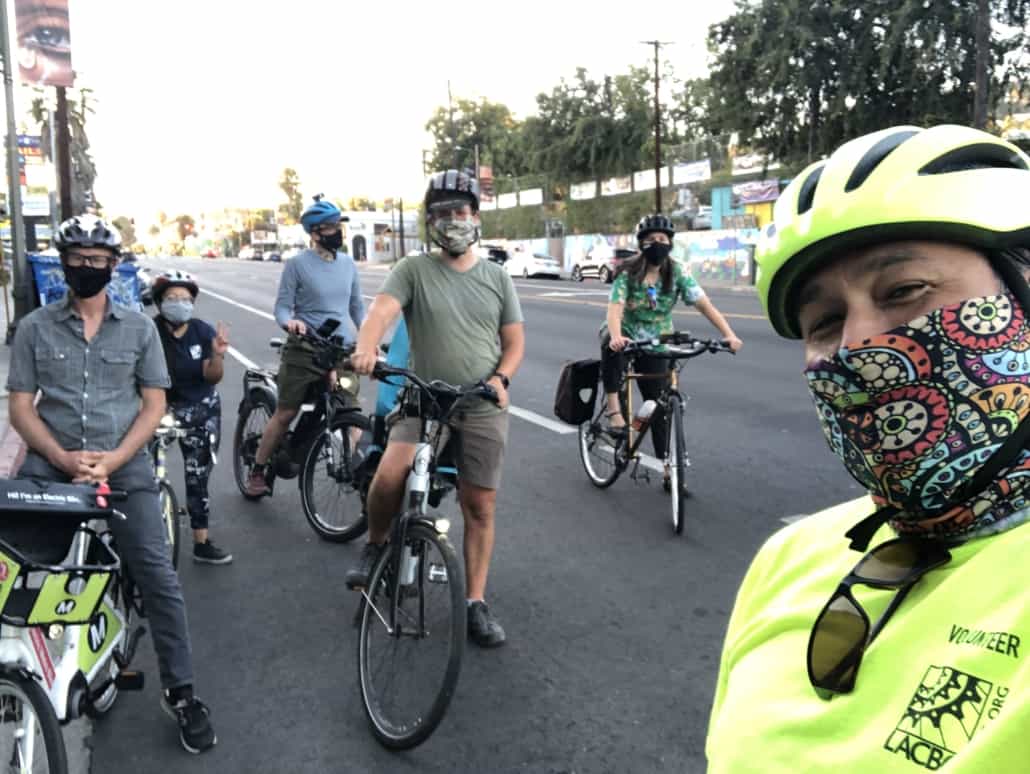The 2019 California Bicycle Summit delivered on its theme: Intersections.
CalBike held its 2019 California Bicycle Summit at the Center for Healthy Communities in Los Angeles in October 15-17. Participants in dozens of panels, workshops, plenaries, and keynotes grappled with the many ways that bicycling intersects with other key issues like housing and the climate crisis.
The connection between transportation policy and the housing and climate crises were woven through the Summit. Topics such as racial and economic inequality, discrimination towards women and marginalized gender indenties, and the colonial history of gentrification and displacement were lifted up as well. The great work of our steering committee, speakers, panelists, and activity leaders was key to bringing a diversity of viewpoints into the room.
In order to bring to light the intersections that are vital to effective bicycle advocacy, the Summit also was the most inclusive ever. The steering committee’s outreach brought in many more people on scholarships and representatives from grassroots organizations. The Summit included participants whose voices aren’t always heard in discussions about bicycle safety and infrastructure planning.
There were many moments of enlightenment and connection. Here are some of the highlights for CalBike staff members at the Summit.
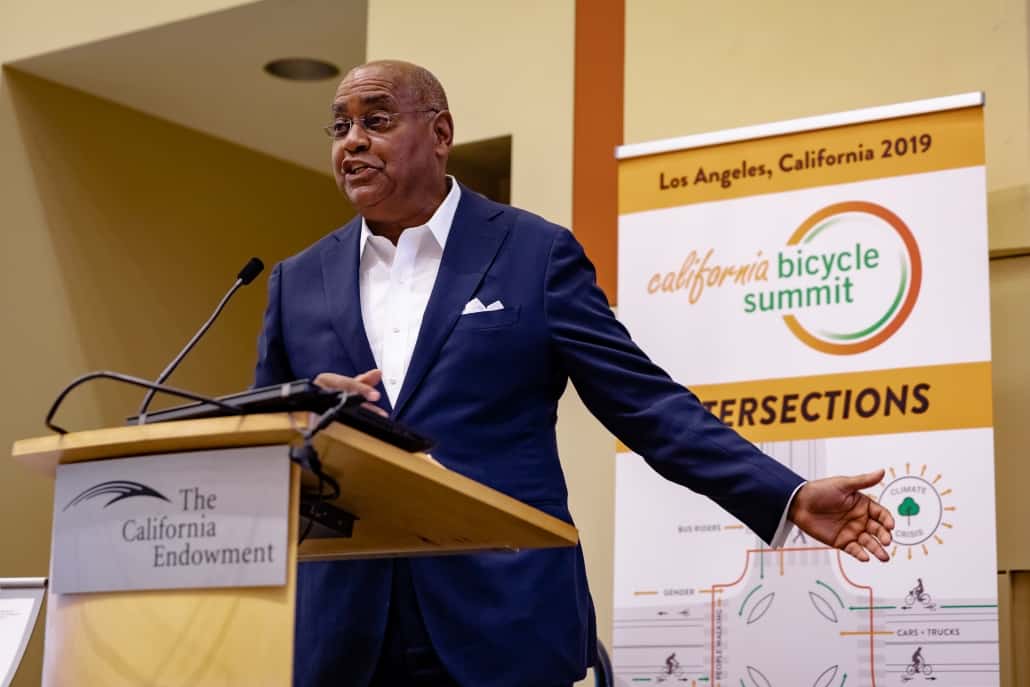
Jared Sanchez, CalBike Senior Policy Advocate
One of my key takeaways from the 2019 Summit was the tremendous potential to develop new ideas and forge new connections. This was possible because of the conflicting ideas and perspectives of the diverse attendees. The great conversations and interactions that resulted have inspired me to do more work through conflict-informed collaboration. I have seen how this mode of interaction can help CalBike fulfill its mission to bring prosperity, equity, joy, and health to all Californians with the aid of the bicycle.
A great example of the fruitful clash of ideas and viewpoints happened during a panel titled The Intersection of Bicycle Advocacy and Housing Policy. This workshop was well-attended and well-received because Senator Scott Wiener’s SB 50 was such a hot policy and planning topic this last year. The panel showcased the diversity of positions on the proposal to tie housing density to transit. The panelists spoke from different backgrounds and expertise. For example, Senator Wiener’s legislative staff spoke of their ongoing collaboration with Los Angeles justice groups, members of which were also on the panel.
The discussion about the intersection of housing equity and transportation justice didn’t shy away from the real conflicts that have arisen between stakeholders the last couple years as the legislation appeared likely to pass. This panel brought key conflict-informed collaborations into a public light specifically within a bicycle advocacy framework, so our members and supporters could engage as key stakeholders themselves. This would not have been possible if we hadn’t brought together a diversity of backgrounds and viewpoints for this panel. The workshop may not have resolved years of ongoing negotiations between the varying positions on this issue, but it did offer an accessible entry point where a variety of opinions and facts came into focus at once. We hope that thought-provoking Summit conversations like these contribute to the larger, and more exclusive, policy and planning decisions being made.
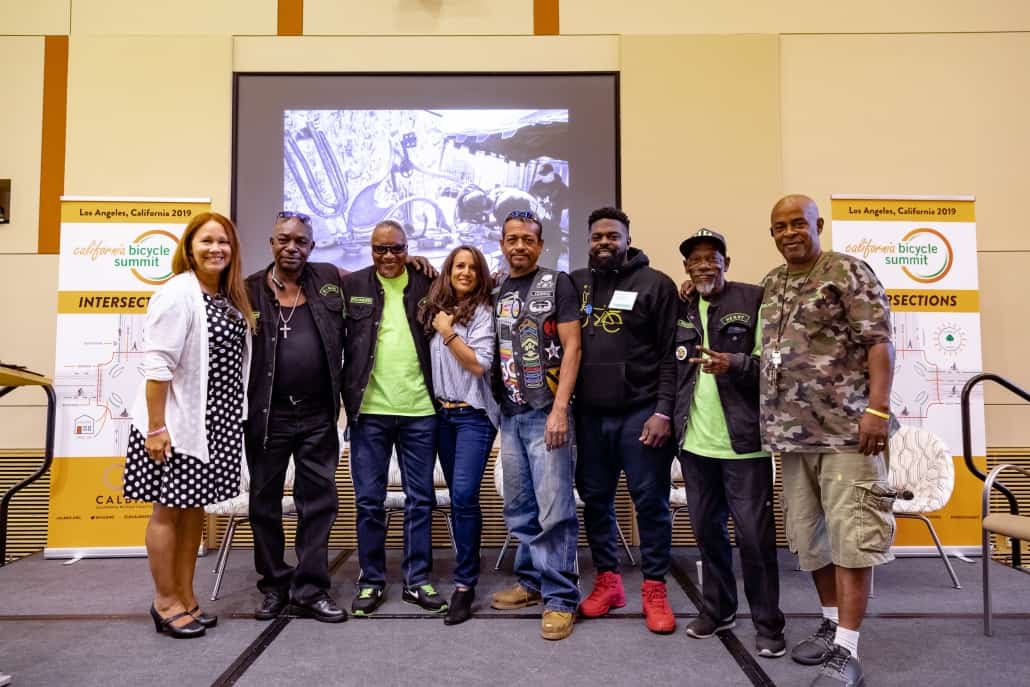
Forest Barnes, CalBike Active Transportation Planner, Central Valley
This was my first time at the Summit and I was blown away by the workshops and attendees, especially the Green New Deal panel and work session afterward. I was really inspired by folks thinking about the bike and bike culture as a very real and scalable climate solution that can be put into place quickly. I was also really struck by how great it was to see folks from the Bay Area getting to learn lessons from folks in SoCal and vice versa. Everyone had amazing energy and it was super inspiring. It was really helpful for my work in the Central Valley. I also loved the session about biking as a form of community culture and the benefits it brings, the at a lunch plenary. It brought home to me how bike culture is a tool for communities to use to alleviate racist institutional caps on their mobility.
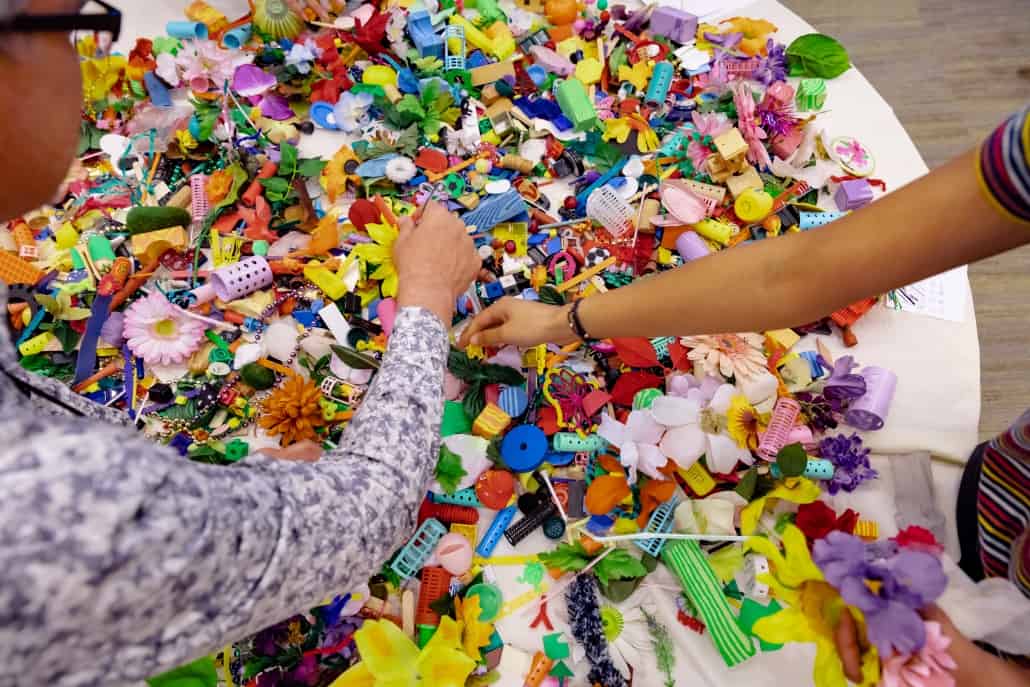
Jenn Guitart, CalBike Development Director
I was inspired by our workshop on Bicycling and the Climate Crisis, which included five themed breakout discussions where experts in the fields of housing, funding, and sustainable transportation led participants in brainstorming about local and state strategies for collaborating to avoid the worst impacts of the climate crisis. So many great ideas in the room: Let’s build a culture of glamorizing bicycling the way we have done with cars (Beyoncé in a bike commercial!). Let’s eliminate single family zoning to get more infill housing built. Let’s reform how curb space is used. Let’s be less polite to our lawmakers, and demand more change. Let’s get funders and advocates together so that big foundations stop focusing so much on electric vehicles, and start funding bicycle and transit advocacy.
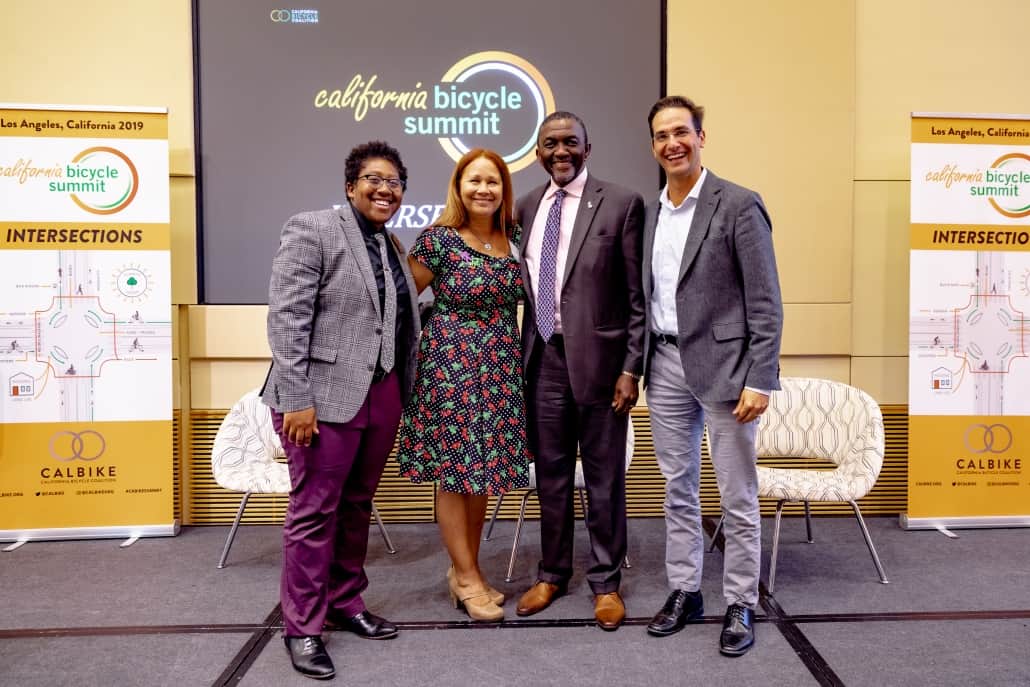
Linda Khamoushian, CalBike Policy Director
This year’s Bike Summit was full of energy and inspiration. It was a particularly sensitive time for me right after the Governor’s veto of SB 127, but sharing the disappointment with the committed and passionate participants was healing. More importantly, we had space to plan how to move forward effectively and bring the change we need in our communities for a healthier and safer environment for biking and walking in California. Meeting and sharing space with other advocates and the various professionals who lent their time and expertise to the Summit left me with hope and inspiration to carry the work forward.
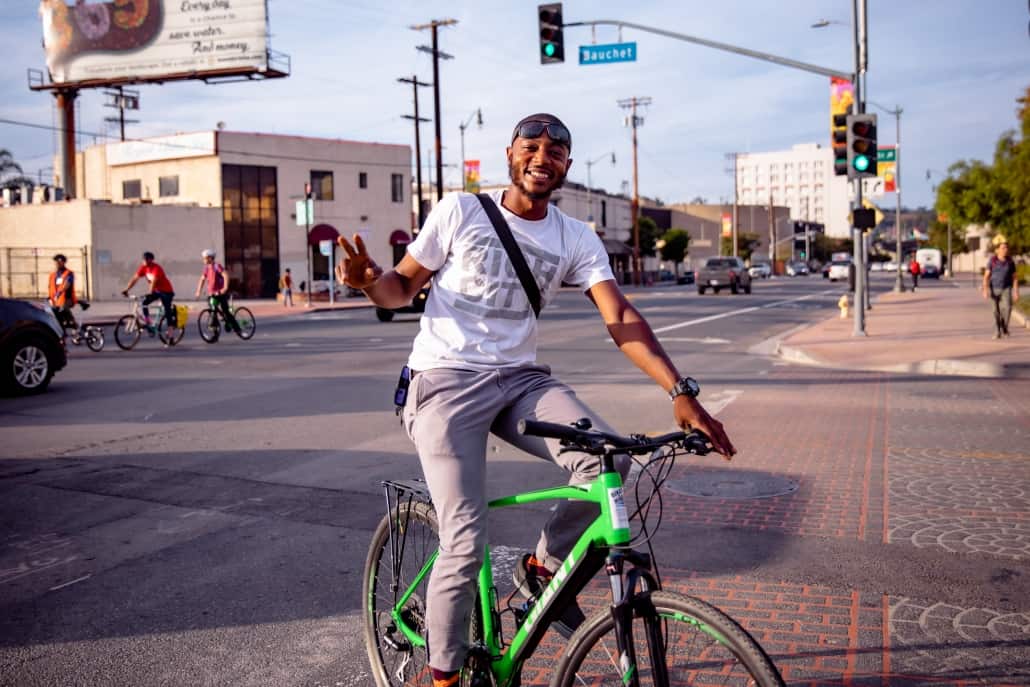
Dave Snyder, CalBike Executive Director
What was most thrilling to me was the diversity of perspectives presented. As an organization, we are simultaneously a single-issue organization and an intersectional social change organization that deals with an incredibly broad range of concerns. In other words, in order to win on behalf of the issue we focus on, we can’t focus on just that issue. It’s an interesting tension to hold, and I think the Summit was a very effective expression of how we navigate that tension to make social change. There were workshops on something as bike-specific as the aesthetic details of the worlds’ most beautiful bikeways and on something as fundamental to social justice in the U.S. as the role of racism in policing, and many topics in between. We had some of the state’s most elite institutional leaders and some of the state’s most heroic grassroots leaders. I wanted the Summit to strengthen our movement by bringing these diverse perspectives together. While we still have work to do to bring the full diversity of Californians who care about the intersection of bicycling and social justice into the room, this gathering definitely succeeded in strengthening our movement.

All in all, the 2019 Summit was a space where participants could share experiences and knowledge and develop common understandings across diverse constituencies. If participants walked away feeling inspired and energized, but also challenged with new perspectives, we succeeded in what we set out to do.
Thank you to everyone who came to the 2019 Summit! We admire your commitment to the work. Thank you to The California Endowment and its staff for hosting us in their beautiful space. Thank you to the most excellent Michelle Barrionuevo-Mazzini, the event’s main coordinator, who made sure everything went smoothly. We couldn’t have done it without her. If you didn’t make it this year, we’ll hold our next Summit in fall of 2021—keep your eyes peeled for details.
All photos courtesy of Evan Dudley.
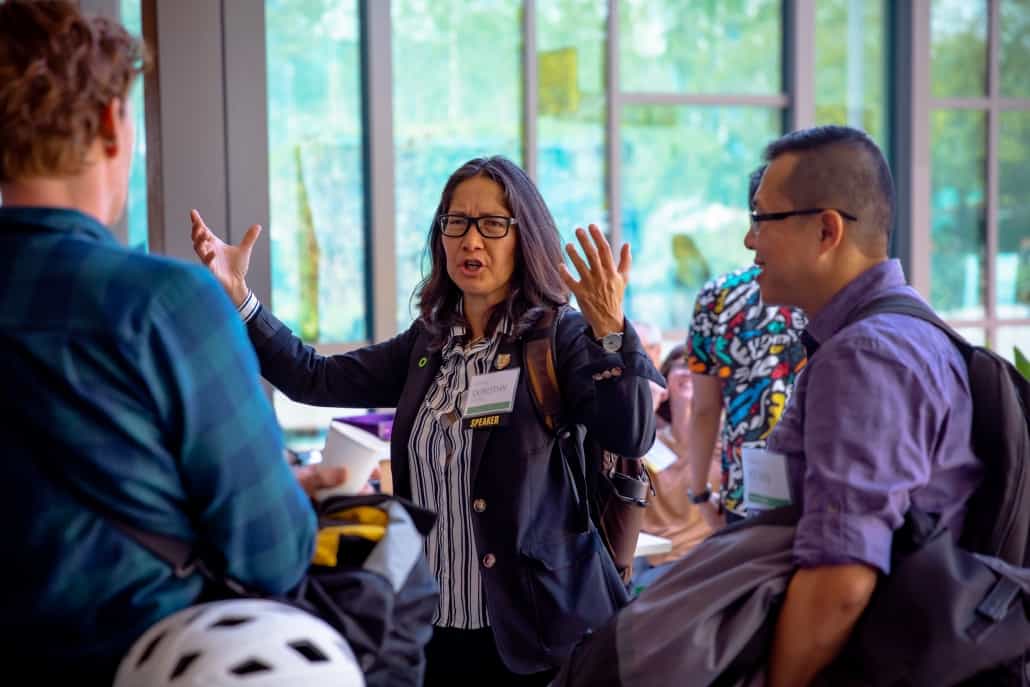
Photos by Evan Dudley.
